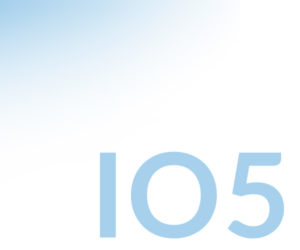Below you will find a description of the impact the completed IOs might have on partners and other stakeholders. You will also have access to the reports containing the results stemming from each IO by clicking on the images on the left hand side.
IO1: Assessment of current intra- and interlingual live subtitling training and practice
Impact on partners:
With the completion of this IO, the ILSA partners now have at their disposal the most thorough and up-to-date data about the current state of intra and interlingual respeaking training and practice around the world. UVigo, UAntwerp, UVienna and UWarsaw will be able to incorporate this valuable information as part of their respeaking courses, thus providing students and future respeakers with an accurate and up-to-date perspective of the professional market. The non-academic partners of the project (Intro PR and VRT) now have essential information that can be used to update and refine their recruitment process as well as the training and working conditions of their professional live subtitlers.
Impact on other stakeholders:
Other universities (University of Roehampton, University of Stockholm, Universitat Autònoma de Barcelona, etc.) all over the world have asked for the data provided by this IO, as it constitutes an invaluable contribution towards a more up-to-date and thorough knowledge about the current state of professional respeaking training and practice. The same goes for governmental regulators such as Ofcom (UK), the CNMV (Spain) or CRTC (Canada), other access service providers (Mira lo que te Digo, AiMedia, etc) and user associations (Action on Hearing Loss), who will benefit from having clearer perspective of the live subtitling landscape.
IO2: Development of speech-recognition software and competence analysis for ILS
Impact on partners:
As a result of this IO, at a regional level, the nearly 3 million people living in Galicia are now in a position where it is possible to make live content accessible for the first time through the provision of live subtitles. Besides, the results of the experiment conducted as part of this IO have enabled partners to obtain the first empirical data as to what profile (subtitlers, interpreters, translators, etc.) is better suited for the provision of interlingual live subtitling (ILS). This is extremely important for the academic partners (so they can decide what entry requirements are set for their respeaking courses) and the non-academic partners in the project (who need to decide what professionals they choose to recruit for this new task).
Impact on other stakeholders:
Universities, companies, user associations and regulators have often wondered about the feasibility of ILS, suggesting that it is too complex a task. The results obtained in this IO show that ILS is feasible given the right conditions and they provide essential data to understand what are the main challenges of this task, who is better equipped to meet them, what remedial actions can be taken when the results are not satisfactory, etc.
IO3: Profile definition and competences of the professional ILSer
Impact on partners:
The results of this IO have enabled the partners in the project to know exactly what skills and abilities are needed for ILS, which is essential in the development of academic (for UVigo, UAntwerp, UVienna and UWarsaw) and professional courses (Intro Pr and VRT). These results provide ILSA partners with the remaining information needed to be able to decide what kind of professional they need to recruit and who can be trained to become an ILS.
Impact on other stakeholders:
Now that with IO2 it has been established that, despite its complexity, ILS is feasible, the results of this IO provide governments, companies, universities and user associations with an accurate picture of what exactly is needed to be able to deliver this service as far as skills and abilities are concerned. These results help to give social visibility to a new professional profile that has the potential to become an essential in the pursuit of equal opportunities as far as translation and accessibility is concerned.

IO4: Mapping the New ILSA Course
Impact on partners:
Although the partners knew what the current state of ILS training and practice is (IO1) and the profile of the students/professionals who can do this job (IOs 2 and 3), it was still necessary to design a course, which is what this IO has delivered. The ILS courses developed by each ILSA partner will build on the course structure presented in this IO.
Impact on other stakeholders:
Before the beginning of ILSA, there was not any ILS course available anywhere in the world. Any institution, associations, etc. who attempts to train these new professionals now has the possibility to draw on the course structure presented in this IO and supported by the empirical results obtained in the previous IOs and by the expertise of the different partners.

IO5: Development of Training Material for the New ILSA Course
Impact on partners:
On the basis of the results from previous IOs, especially IO4, as well as partners’ vast experience in the subject field, this IO has allowed the members of the project to work on the development and revision of training materials for the new ILSA course. Moreover, these materials have already had an impact on how respeaking is taught nowadays. For example, thanks to their modular nature, they have been extremely useful to adapt the contents that are taught in the MA in Multimedia Translation by the University of Vigo.
Impact on other stakeholders:
Bearing in mind that the ILSA course is the first one of its kind in the world, with the completion of IO5 any institution interested in training ILSers has at its disposal a collection of materials that can be used for that purpose, either by following the structure of the ILSA course (which is based on the empirical results from previous IOs) or by simply using the materials freely available online on the University of Vigo’s MOOC Platform. One example of this is the European University of Valencia’s MA in Audiovisual Translation, where the materials stemming from IO5 are already being used. Moreover, the materials are also being used to train the Ai-Media team in Canada in pre-recorded subtitling and respeaking. Ai-Media is a leading company in providing high quality speech-to-text solutions for broadcast, government, education and corporate clients all around the world.

IO6: Quality Assessment of the New Material and Progress Recommendations for ILSA
Impact on partners:
The work carried out in this IO was based on the results stemming from the previous three IOs. It allowed partners to test and check the appropriateness and quality of the course design and course materials. There is no doubt that it has had a great impact, bearing in mind that it has helped polish the professional profile, course design and training materials, and thus improve how respeaking is taught nowadays.
Impact on other stakeholders:
Considering that before the beginning of ILSA there was not any ILS course available anywhere in the world, now any institution, association, etc. will have available a complete course and all its materials which have been tested in-depth by experts and users themselves.

IO7: Protocol for the implementation of ILS on TV and in social, educational and political settings and recognition of the ILSA course with ECTS credits
Impact on partners:
This IO draws on the results from previous IOs, especially IO1, IO3, IO4 and IO5, and aims to prepare guidelines for the implementation of interlingual live subtitling in different settings, namely: education, live events and television. HEIs participating in the project are already benefitting from the guidelines prepared in this IO, as they are being integrated in their live subtitling courses. In some cases, they are being applied more widely at university level to make public events and lectures accessible. The universities involved in ILSA have also been contacted by other HEIs, such as University of Edinburgh (UK) or Harvard University (US) to collaborate with them in the provision of accessibility for educational purposes. As for the provision of live subtitles on television, both industry partners of the project (VRT and INTRO PR) have already been providing live subtitles in this setting, which means the guidelines for the implementation of live subtitles on TV will undoubtedly benefit their own practice. This will also apply to the many companies that have collaborated with the ILSA team over the past three years (see Impact map on this website), such as AiMedia or Transcription Star. As for ILS in live events, INTRO PR, as a non-academic partner of the project, will benefit from the guidelines in this area, as will some of the media companies that are now offering live subtitling services for both TV and live events.
Impact on other stakeholders:
The results drawn from this IO are likely to have a major impact on many stakeholders in the years to come, including the different governmental regulators, broadcasters, companies and user associations that have collaborated with ILSA during the life of the project and worldwide organisations such as the ITU (United Nations) and the Global Alliance of Speech to Text Captioning.















